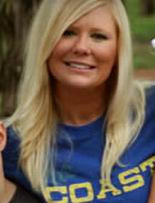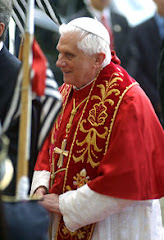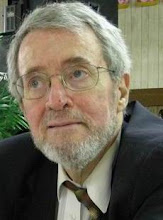Attorneys tend to be starched shirt conservative types, including the occasional liberal lawyer, most of whom maintain a civil practice as a plaintiffs' advocate, pitted against their more conservative counterparts (e.g. insurance defense practitioners), whereas criminal defense lawyers tend to be more live-and-let-live types, rubbing elbows as they do with some rather unsavory folks, be they rapists, murderers, or child molesters. I've practiced law in South Texas for almost 30 years, so I've had ample opportunity to mix with both types, but even the most open-minded masters of the penal code appear to adhere to mainstream religious beliefs no matter how "socially liberal" they may seem to be. Knowing this, I have hesitated to declare myself openly as a free-thinker or agnostic, much less an atheist.
On at least one occasion, I found myself denying my convictions as an atheist. It occurred one day while shopping at a local electronics store. I ran into an attorney who dropped out after several years of consumer advocacy (suing used car dealers, bill collection agencies, and insurance companies refusing to pay up when claims were filed), and I wondered what had become of him since he'd written a few columns for our now-disappearing daily paper. In the big box store where I ran into him, I asked what he'd been doing, and he said he was writing a book about religion and the law.
"And by the way," he added, "I hear you are an atheist."
I recall turning beet red. I stammered, hemmed and hawed. I searched for a "proper" explanation. I found myself saying that I was not "really" an atheist, "more like an agnostic." And then, in a moment of paranoia, I asked him where he'd come by his information. My home town, where I practice, is a small city of about 350 thousand persons, some 50 to 60 percent Catholic, about the same number as the Hispanic population, although it is demonstrably true that many Hispanics have abandoned the Church of Rome for evangelical congregations and the local equivalent of the "mega-churches." The county courthouse, however, is a beehive of rumor and gossip; I like to think of it as the smallest village in the state. When a judge sneezes, everyone learns she has a cold, and her enemies want to believe she's near death. (About half of our benches are occupied by women, and at one time the Fourth Court of Appeals in San Antonio was packed by nine female jurists.) The ladies have made up for lost time.
History has shown that once they express their heretical views, local atheists become notorious. Completely by accident, when I bought my home I learned that I was moving into the same block as "that guy who writes the letters to the editor -- that atheist!" He keeps to himself and is rumored to be in poor health, which of course allows the believers to claim "God" is punishing him for his disbelief. At the time I moved in, I considered myself a Buddhist, but only in the sense that I thought Buddhism a system of ethics, not a religion; after all, one does not have to believe in "God" to be a good Buddhist; one has only to meditate. Little did I know that as time went by I, too, would arrive at a point in my experience when I could no longer believe in a deity, not even Buddhism's equivalent of Christian saints, the bodhisattvas.
The attorney in the electronics store allowed as to how he'd learned of my free-thinking from another local lawyer, since retired, a person with whom I once had coffee and taquitos about twice a month and a dedicated Catholic. When he pulled in his shingle, Jack offered to send me some work representing priests and nuns in the local diocese who might be cating about for a new lawyer. I whimsically asked, "What do I have to do, convert?" It shocked me when he answered, "Yes." He knew of my heathenism, so he wasn't surprised when I responded that it wasn't worth it.
Then we had a break: he asked me to do some secretarial work for him, but as I have no secretary and spend an inordinate amount of time doing my own word processing, I replied that I simply did not have the time. He became irate and that put the quietus on our coffee klatches. Probably without ill-will, he apparently let on to at least one other attorney that I am an atheist.
And although I now wear that label with a certain sense of pride, I don't exactly like having everyone know about it. I began to wear the Scarlet Letter: "H" for hypocrite. That's right. I believe atheists have a moral obligation to let people know they do not believe; an obligation even to debate the issue with religious friends and acquaintances. But I kept my mouth shut. When a local evangelical group showed up at a city council meeting to protest a state grant of aid to Planned Parenthood, I considered writing a letter to the editor but could not bring myself to do it. (In fairness to myself, I did fire off a missive to the council person who led the vote against the funding, attaching to it a download concerning a think tank's findings indicating that for every dollar spent on birth control education four dollars are saved by taxpayers.)
Then came the April issue of the state bar's house organ, the Texas Bar Journal. Two separate letters to the editor of that periodical stated what were, to my mind, untenable beliefs. One was critical of the bar's decision to deny pension benefits to a judge who got "de-benched" for some kind of sexual derelictions. The letter writer was familiar to me: a liberal, he often writes letters to the journal in support of civil rights and other causes. He ended his rant by observing that the ex-jurist's "sins were not unforgiveable [sic]."
The other letter, from a Texas attorney living in New Mexico, decried the magazine's memorial issue devoted to Abraham Lincoln's career as a lawyer, and the writer chided the editors for leaving out any mention of Lincoln's "Christian upbringing" and how it influenced his decision-making. The writer then went into a diatribe against the doctrine of separation of church and state, which he called "a myth."
That did it! Reactionary that I am, I sat down and wrote a response, then faxed it off to the journal. I took issue with the first letter writer for intimating that there are some sins which can be forgiven and others that cannot. I said, "The fly in the ointment of the Christian concept of remission of sin is that it allows the sinner to go to church on Sunday and go to hell on Monday." In theory, no sin, no matter how heinous, is incapable of being foregiven. I also said that it was obvious even Christians themselves don't believe this: why else do they support capital punishment; almost all murderers repent in their last little speech before they're strapped to the gurney and administered heart-stopping chemicals.
But it was the second letter than really ticked me off. If the separation doctrine is a myth, why do we have a First Amendment to the Constitution. I pointed out that even Lincoln had his agnostic moments. For example, it is well known that when told the Union had "God on our side," he responded that their southern neighbors, who believed in slavery, also claimed God's blessings. One side of the Civil War had to be wrong about that, or else "God" was arbitrary and capricious.
Moreover, I said, the Founding Fathers were acutely aware of the long history of religious tyrany in Europe: it was partly because of this that they established our democratic republic. Some of them were deists at best and a few, including John Adams and Thomas Jefferson, were trenchant in their denunciation of religion -- and Christianity in particular.
Then I got to what really upset me about the writer's silly letter: the intimation that only religious folk are capable of being moral, ethical, and upright. I said, this was a particularly odious position to take in a day and age when more and more people, including myself, think of ourselves as free-thinkers.
Yes, I did not use the word "atheist," so I suppose some would say I have yet to come out as one. But if any of my fellow lawyers ask I will, finally, admit it. And anyone reading the letter can guess my true position on the matter. And although I must suspect many of my fellow lawyers and, worse, some of the judges in whose courts I regular appear, will conclude that I wear the big "A" rather than an "H," I am finally willing to let the chips fall where they may.
Monday, March 30, 2009
Subscribe to:
Post Comments (Atom)























No comments:
Post a Comment